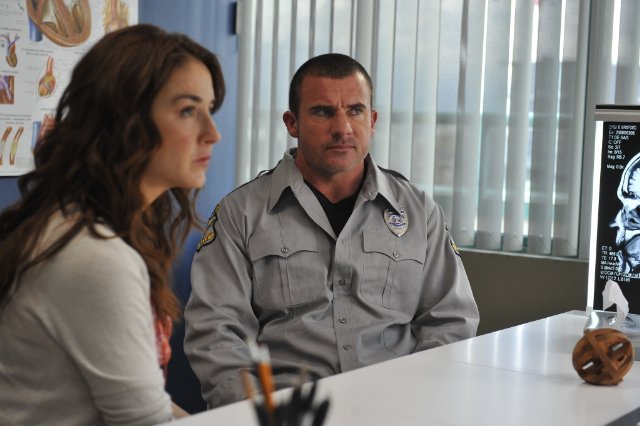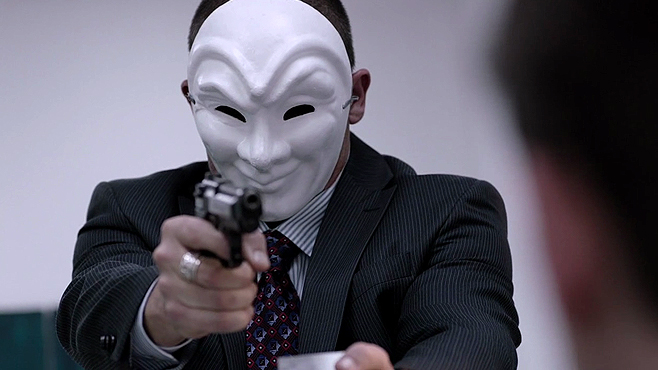Assault On Wall Street is one of the most confounding movies you could ever watch; although I am not necessarily suggesting you watch it. Set amidst the most recent financial crisis in the United States, it tells the story of a man who has every possible negative outcome occur in his life stemming from the crisis. He loses his life savings due to a shady investment in commercial real estate, has a lien placed upon him because of the investment, loses his job, his home, and to make matters even worse his health insurance cap is reached, amongst other things. The loss of health insurance is an important part of the story as his wife needs post brain tumor therapy and without the insurance coverage they must resort to using their credit cards. The credit card debt soon piles up, the interest rates rise, and suddenly yet another problem is added to the list for the couple. The onslaught of negativity Assault On Wall Street delivers is far too much for a casual viewer, made worse by what the film does as the solution to Jim’s (Dominic Purcell) problems–he becomes a domestic terrorist.

For the majority of Assault On Wall Street you are treated to watching Jim’s life fall apart, and it only gets worse and more extreme as the minutes tick by. Then the big “twist” happens, where the guns come out and even grenades on occasion. Domestic terrorism is never an easy thing to display on film, or to watch. In Assault On Wall Street it is sickening. The full-blown assault Jim displays is against those he deems have harmed in some way, whether directly or indirectly, and those who are responsible not only for his own problems but those of many. If handled another way its possible that the film would not be a grotesque display of violence against innocent people; unfortunately this is not the case. When the bullets start flying, and people are killed at will and random the viewing experience becomes that of a lesson in how not to write a movie about internal strife and anger towards the government and/or state of the economy. There are more sensical ways to display anger and frustration without having to resort to violence that is considered acceptable–the police in the film turn a blind eye to Jim’s killing spree as they are his friends and sympathetic to his cause. We as viewers are meant to accept his actions as that which could not be avoided and are fully justified because of what has been done to him. There is never a moment where the demented acts of violence could be seen as justifiable in Assault On Wall Street.

Assault On Wall Street is obviously trying to make a statement about the effects of the financial crisis on a normal everyday citizen of the United States. This message is lost the minute the first innocent victim is killed, and never regained. There is no empathy to be found for Jim at the end of the film, or any attempt by the filmmakers to apologize for his actions or question his mental stability. He is merely played off as a vigilante for the people. If Jim is the new Robin Hood, the new Superhero of justice, than this is a world we should all be frightened to live in–you may not like what happened in the financial crisis, or the people who are responsible, but killing at will and without remorse is never a solution, nor a super heroic state.
Watch Assault On Wall Street On Demand At Amazon.